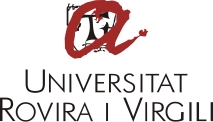- Programme coordination
| Dr. M. Teresa Colomina | mariateresa.colomina(ELIMINAR)@urv.cat |
- Programme Academic Committe
| Dr M. Teresa Colomina (president) | Dr Urbano Lorenzo Seva (secretary) | |
| Dr Lourdes Martorell Bonet | Dr Manel Santafé Martínez | |
| Dr María Cabré Bargalló | Dr María de los Ángeles Fernández Estévez | |
| Dr Jordi Miro Martínez |
- Offer
| Places available | 25 |
- Language
- Catalan
- Spanish
- English
- Introduction and objectives
The doctoral programme in Health, Psychology and Psychiatry brings together various disciplines in order to provide a broad overview of the basic and applied processes in psychology, psychiatry and health sciences. The aim is to encourage exchanges and convergence between disciplines for a better understanding of the problems faced. Another aim is to promote a network of multidisciplinary scientific contacts that will contribute to the professional development of our graduates.
The main objective of the programme is to offer a multidisciplinary framework to favour the training of doctoral students in various fields of health, psychology and psychiatry. The students are trained to raise and solve problems methodically and efficiently and to communicate their knowledge in international scientific symposia and to the general public. They will be able to transfer their scientific knowledge to society and apply it in their work.
The programme focuses on health in general and mental health in particular, bringing together specialists in the fields of psychology, psychiatry, health sciences, neuroscience, neuroendocrinology, neurotoxicology, psychopharmacology and neurorehabilitation.
- An inter-university doctorate
The doctoral programme in Health, Psychology and Psychiatry is organised and coordinated by the URV in collaboration with the following university:
Parcipating universities:
|
|
 |
- Entry profile
The recommended entry profile is a person holding an official university degree related to the research of the Doctoral programme in Health, Psychology and Psychiatry. A high motivation for research in the field of the doctorate is required, as well as to have a functional English level, equivalent to the C1 level of the Common European Framework of Reference for languages, which enables to understand and write scientific texts in this language.
The residents in training as health specialists (EIR) will also be appreciated. For these cases, the academic committee of the doctorate may establish bridging courses. The access of students who have taken other training official profiles of Bachelor and postgraduate can also be considered, upon justification of the interest of this cross-disciplinary training and its integration in one research team. In this case, bridging courses may also be required, which will be approved by the academic committee.
Moreover, candidates who have taken other official training profiles of Bachelor and postgraduate will also be appreciated, upon justification of the interest of this cross-disciplinary training and its integration in one research team. In this case, bridging courses may also be required, which will be established by the tutor, the supervisor and approved by the academic committee.
- Career opportunities
Students who successfully complete the doctoral programme will be able to work in the following positions:
- Expert staff in state regulatory agencies in the field of mental health.
- Researchers in the development of tools for behavioural assessment.
- Experts in mental health and psychology.
- Teachers of mental health and psychology.
- Researchers in the characterisation of drugs and neurotoxins.
- Consultants in mental health and psychology.



